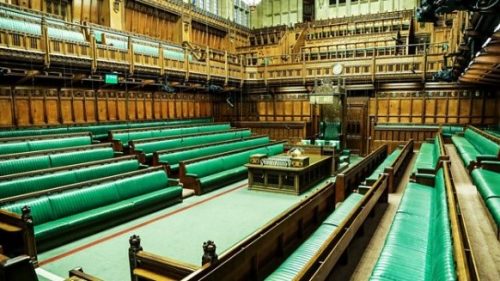Year 7 ‘Taste the Future’ during enrichment
On November 5th, year 7 enjoyed five taster lessons of subjects that they have never studied before but one day, might choose to. Several year 7s said that they enjoyed Politics...
Filter by Category
Filter by Author


























































































































































































On November 5th, year 7 enjoyed five taster lessons of subjects that they have never studied before but one day, might choose to. Several year 7s said that they enjoyed Politics...
Posted by Stephanie Knowles

At BMS, we have a ‘Mind to be Kind’ The whole of year 8 on Thursday 5th November took part in an exciting day of ‘Mind to be Kind’ workshops. During the day ‘Fearless’, a company...
Posted by Stephanie Knowles

As part of Black History Month, the A Level Law students have been studying how the English Legal System addresses issues of equality and diversity, especially in the light of...
Posted by Stephanie Knowles

Well done to the students who are enhancing their knowledge through SAM Learning. If any student says to you they don’t have any work to do, you can always tell them to do...
Posted by Suresh Varsani

Dear STEM buddies, This week’s challenge is a Science related STEM challenge all about expanding gases! Our STEM Student Leaders will be meeting on a weekly basis to...
Posted by Suresh Varsani

During the recent Enrichment Day, our Year 11 students were treated to some intense Science and English sessions. Our Science and English teams prepared special resources just for...
Posted by Suresh Varsani

Since her appointment at the start of the year, Jenna Statham, our Head Prefect has been rising to the challenge of her Senior Student Leadership role and leading the whole...
Posted by Suresh Varsani

Sociology is one of the exciting subjects that students can choose to study at GCSE and A Level. Sociology means the scientific study of society and covers units including family,...
Posted by Claire Till

Posted by Danielle Bowe

Shakespeare’s play of the month is Hamlet. Set in Denmark, Hamlet is a play that explores conscience, madness and the nature of humanity. A young prince meets his father’s...
Posted by Natalie Stanton
As part of Black History Month, the A Level Law students have been studying how the English Legal System addresses issues of equality and diversity, especially in the light of recent news reports. Law leader, Katie Parker, felt inspired to write this article.
Can the Legal System be Considered Diverse?
October has marked Black History Month 2020, a year where the issue of equality and diversity is seen as more important than ever. The month encourages everyone to think about the issues that ethnic minorities face in our society. Since studying law A level, I have become more aware of these issues in the wider context of the UK English Legal System. Throughout history various legal cases have raised issues regarding racial inequality, which have encouraged many people including senior government officials to consider, is the legal system diverse enough?
During this month, I have had the opportunity to research a number of landmark cases which have led to government reports in an attempt to create new guidelines with the goal being to make a fairer system for ethnic minorities. In 1981, following the Brixton riots, which were sparked by antagonism between British black youths and British white police, the government commissioned the Scarman report to highlight problems of racial disadvantage and inner city decline. The report warned that ‘‘urgent action was needed’’ because evidence was found, even then, of a disproportionate use of stop and search against black people. The report was broadly welcomed and some of its recommendations were implemented. However in 1999 the Macpherson report, which followed the now infamous murder of Stephen Lawrence, stated that many of the recommendations had been ignored. The 70 recommendations made by Macpherson were implemented to show ‘‘zero tolerance’’ for racism in society, concluding that the investigation into the killing was ‘‘marred by a combination of institutional racism and a failure of leadership’’. The impact of the report was that 67 of the report’s recommendations led to specific changes in practice, including the abolition of the ‘‘double jeopardy rule’’- which stated that people could not be tried for the same crime twice. More recently, in 2017, there has been The Lammy Review which investigated the treatment of black and minority ethnic individuals in the criminal justice system. However, despite 35 recommendations being made to reform the criminal justice system, Lammy quite rightfully, in my opinion, stated that this is a ‘‘ time for action on racism, not more reports’’.
Traditionally the legal profession had been called ‘stale, male and pale’. Young black lawyers have been struggling to fit in and are often mistaken for defendants. In the news recently, black barrister, Alexandra Wilson stepped forward to comment on being mistaken for a defendant three times in only one morning. She declared that this was all ‘‘symptomatic of a much larger problem’’. She felt as if she was ‘‘fighting two battles, not only for my client, but fighting to prove that black people can be barristers too’’. Another young black barrister, Shina Animashaun, who was also mistaken for a defendant, said that he felt that you ‘‘shouldn’t have to fit the mold’’ or ‘‘change yourself’’, he hopes that down the line there will be more judges, QCs and senior people working within the legal profession who will be able to speak on the issues that minority groups are facing and really understand them.
It is shocking that, despite all the enquiries, reviews and law reforms, some racial inequalities still remain in our society and in our legal system. However, I do believe that young people, like myself, are becoming more educated in the importance of diversity and equality and look forward to a future fairer legal system as younger generations take on senior responsibilities that will enable them to make a real difference. The aim must be to create a system that is fair for everyone regardless of their background, regardless of their culture and regardless of their race.

The recent pandemic has shown very clearly how political decisions taken by Government Ministers dominate our everyday experience and lives. It has also highlighted some...

It has been great to welcome so many new Sixth Form students to Bushey Meads School this year, not only from last year’s hard working Year 11 cohort, but also from a growing...